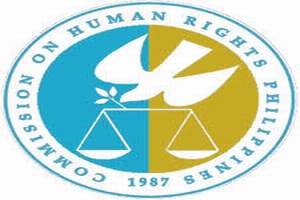DOLE: 100,000 vulnerable workers to benefit from DOLE-DOST convergence program on livelihood in 2014
Close to 100,000 vulnerable workers,
such as parents of child laborers, landless farm workers, fishery
workers, small transport workers, home-based workers,
and returning/displaced overseas Filipino workers (OFWs) in Typhoon
Yolanda-hit areas, will benefit from the DOLE-DOST Convergence Program
on Technology-Driven, Resource-Based, and Sustainable Livelihood.
Secretary of Labor and Employment
Rosalinda Dimapilis-Baldoz assured this yesterday as she committed the
DOLE to improve the delivery of its livelihood programs in convergence
with the Department of Science and Technology (DOST), in cooperation
with the Department of Agriculture, Department of Trade and Industry,
and other concerned government agencies.
“It is only through convergence that we
bring technology, livelihood, and employment on the ground,” she said,
expressing her core message as she pitched for the joint effort of the
DOLE and the DOST in rebuilding typhoon-stricken communities and
ensuring sustainable, resource-based livelihood for displaced workers in
these areas.
“We have been doing a lot of livelihood
efforts to typhoon-stricken communities but the real challenge for the
government is sustainability,” Baldoz said this after she and DOST
Secretary Mario Montejo signed the memorandum of agreement on the
convergence program at the Occupational Safety and Health Center in
Quezon City.
According to Baldoz, the DOLE has a
budget of P132 million for the first year of the three-year convergence
program, out of the total DOLE Integrated Livelihood Program budget of
P609 million in the 2014 General Appropriations Act.
“In addition, we could also tap for the
convergence program funds on livelihood from the 2014 DOLE supplemental
budget under Reconstruction Assistance on Yolanda [RAY] Project of P833
million,” Baldoz explained.
She further said the DOLE would make
available the P2 billion OFW Reintegration Program for OFW returnees who
would opt to venture in either business expansion or start-up
operations.
“OFWs who are interested to start or
expand an existing business enterprise may avail of loan assistance
under the P2 billion reintegration program without collateral as long as
the business they want to put or expand remains viable and profitable,”
Baldoz said.
Present to lend support to the DOLE-DOST
convergence program are Department of Trade and Industry Undersecretary
Zenaida Maglaya and Department of Agriculture Director Renato Manantan.
“The convergence of national and local
government agencies to maximize the use of scarce government resources
is what we need to build sustainable enterprises and to transform
Yolanda survivors into ‘techno-preneurs’ borne out of their own
ingenuity in utilizing their local resources. By
bringing technology-based and innovation-led entrepreneurship, we are
opening an array of livelihood opportunities to the poor, vulnerable,
and marginalized workers affected by the recent calamities,” Baldoz
said.
The DOLE-DOST convergent program is the contribution of the two agencies to RAY.
Under the convergence program, the DOLE
as the national government agency mandated to promote gainful employment
opportunities and help develop the country’s human resource, shall
identify target beneficiaries of the program; identify in-demand skills
vis-à-vis available skilled individuals in the communities; enroll
projects to the program; and provide funds. It shall also coordinate
with the DA and DTI to be able to provide information on raw materials
and current market demand.
The DOLE also commits to improve
delivery of its livelihood programs in 2014 for 100,000 vulnerable
workers, such as parent of child laborers, marginalized and landless
farm workers, fishery workers, small transport workers, home-based
workers, vendors, waste workers, and non-corporate construction workers,
and OFW returnees
Sharing the same efforts, the DOST as
the premiere science and technology body in the country, will provide
scientific and technological skills, strategies, and assistance that
beneficiaries can use; tap the Technology Resource Center (TRC), DOST’s
corporate arm, to work on the business and livelihood programs
interventions. For other technical requirements of the convergent
program, the DOST shall tap its regional offices, councils, research and
development institutes (RDIs).
More importantly, the DOST shall provide
the necessary technologies for people or group of people for potential
technology transfer or adoption for business, as well as counterpart
funding, in the form of technologies and innovations, technical
assistance, experts’ man-hours, and the like.
“The DOLE and the DOST have already
identified the package of services the two departments will provide to
beneficiaries. These are working capital in the form of raw materials,
equipment, tools and jigs; skills and entrepreneurship training;
training on productivity, safety and health, and organizational
development; and payment of premiums to SSS, PhilHealth, or
micro-insurance for three months, imputed in the total project cost,”
Baldoz explained.
Speaking of a resource-rich country,
Montejo emphasized the need to harness and efficiently maximize
available local resources with the use of appropriate technology to
bring about homegrown products and enterprises.
“We need to find technologies to be able
to harness the resources that are available at hand towards building
better, stronger, and more resilient communities. Our resilience as a
people is beyond doubt. What we hope to achieve is augment it through
the adoption of advanced technology,” Motejo said.
“Our mandates do not change but the way
on how we implement reforms and how we do things on the ground is what
really matters, especially to those affected by calamities and those in
the periphery of socio-economic development,” Baldoz added.







0 comments:
Post a Comment